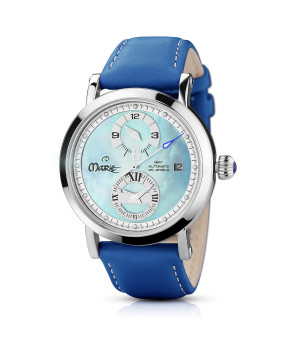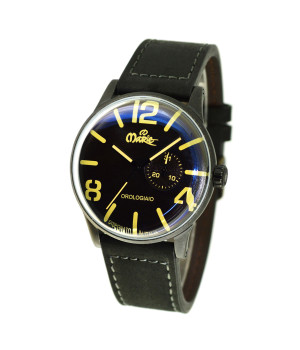Your shopping cart is empty!
Search
|
Your Marie Watch requires a certain amount of care. The following guidelines will enable you to ensure its reliability and protect its appearance over time.Cleaning. Please regularly rinse your watch in fresh water and soap, especially whenever you have used it in salt water. For frequent or prolonged use in water, we recommend you opt for a steel and/or gold bracelet. Condensation. If the temperature changes suddenly, a slight condensation may appear under the crystal of your watch. This mist will disappear by itself and will not affect the functioning of the watch. If the condensation persists, please send back to Marie customer services center. Pressure seals. Over time, the pressure seals on your watch may deteriorate. We recommend that you have the water-resistance of your watch checked once a year by Marie customer services center will replace the seals if necessary. Crystals. The crystals in some of our watches is coasted with a single or double anti-reflective treatment* to improve readability. Wear and tear may cause marks to appear. These are considered normal and are therefore not covered by the warranty. In normal conditions of use, the coating will be completely satisfactory. Automatic movement. When a self-winding mechanical watch has not been worn for some time, it uses up its power reserve and stops. To start it again, either place the crown in position 0 and rewind it manually, or activate the rotor by making movements of your wrist. The automatic movement requires particular care. To maintain its precision, Marie Service Centers recommend a service every 4 to 6 years. This period can vary according to the conditions in which your watch is used. Gold plating. Some of our watches have design features highlighted by a fine PVD Plating. Over time, repeated contact with hard, rough surfaces can cause the plating layer to deteriorate. In normal usage conditions, the plating on your Marie will remain completely satisfactory. Bracelets/Leather straps. Our straps are made of the finest leather, treated for superior resistance to humidity. The crocodile leather comes exclusively from farmed animals, and its origin is certified by customs documents. * According to model |









